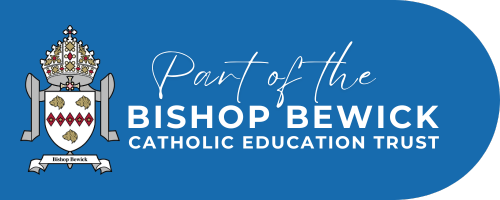
Safeguarding & Child Protection
safeguardiNg & child Protection
Safeguarding is at the core of everything that we do in school. All children know that they have the right to be safe at all times. At St. John Vianney, staff know that safeguarding is everyone's responsibility. We are committed and proud of the safe and secure environment we have created for children, staff and visitors.
DESIGNATED SAFEGUARDING LEADS
All pupils know that every adult in school is there to help them. They also know that there are specific people called Designated Safeguarding Leads in school who have particular responsibility to keep them safe.
As such, we have a number of Designated Safeguarding Leads in school, as shown in the posters below. These posters are displayed in every classroom and around school.
The Designated Safeguarding Leads are shown below.
These members of the school's senior leadership team have a range of responsibilities including:
-
Creating and maintaining the best culture for Safeguarding
-
Raising awareness of safeguarding with all members of the school community
-
Implementing the school development plan in relation to safeguarding
-
Working with outside agencies
-
Protecting all children from abuse and maltreatment
-
Preventing harm to children's health or development
-
Ensuring and enabling all children and young people have the best outcomes.
If you have any concerns or further questions, please do not hesitate to contact one of our Designated Safeguarding Leads on 0191 2672233 or office@stjohnvianneynewcastle.org.
STATUTORY INFORMATION
If you have any concerns or further questions after reading these statutory documents, please do not hesitate to contact one of our Designated Safeguarding Leads on 0191 2672233 or office@stjohnvianneynewcastle.org.
DESIGNATED SAFEGUARDING LEADS
Mrs A D Thorpe
Headteacher
Mrs C Meldrum
Deputy Headteacher
Mrs L McDine
School Business Manager
Mr L Exley
Phase Leader
Miss J Cherry
Assistant Headteacher
Mr H Bell
Link Governor
Mr G Smith
Chair of Governors
SAFEGUARDING WIDER TEAM
Alison Cairns
North Hub Area Manager for Clennel Education Solutions. School external Safeguarding Advisor
Jan Gurkin
Attendance Officer
Linda Lashley
Family Support Worker
SAFEGUARDING CHAMPIONS
We also have a group of pupil Safeguarding Champions who contribute to our policies and procedures in school. They help disseminate information to their peers and their voice forms an integral part of our school life. During the Summer term, our Safeguarding Champions played a key role in the production of our child-friendly Safeguarding Policy, which is shown below.
Our Safeguarding Champions work with our Designated Safeguarding Leads to ensure that everyone feels safe and happy at St. John Vianney and their voice is heard. They lead on many Safeguarding initiatives and play a key role within school.
At St. John Vianney, we always seek children's voice whenever we review or implement any new systems. Pupil's individual voice is sought on all personalised safety / care plans, SEN Support Plans and risk assessments.

KEEPING CHILDREN SAFE ONLINE
The Internet hosts many opportunities for our pupils to learn and explore and, as a school, we acknowledge the use of technology in pupil learning. However, we encourage our pupils to spend their time online safely.
The following websites offer a wealth of information to help you protect your child and keep them safe online.
-
THINKUKNOW - www.thinkuknow.co.uk/parents provides a full website for parents and carers, supporting them in understanding and responding to the risks their children may face as they grow. The site covers a broad range of issues from online safety and sexting, to what to do if you think your child is being groomed online.
-
UK's SAFER INTERNET CENTRE -Provides a wealth of tips, advice, guides and resources to help keep your child safe online. https://www.saferinternet.org.uk/advice-and-resources/parents-and-carers
-
CHILDNET - www.childnet.com/parents-and-carers is an interactive resource to help young people identify the possible risks of social media.
-
National Online Safety Information Posters - The posters below offer guides and summaries to the most popular games and apps so you can be fully informed about the potential risks associated with each platform.
SAFEGUARDING UPDATES FOR FAMILIES
Throughout the year, we send families useful information and links on how they can keep their children and themselves safe through our Friday Newsletter. Some of the links we have included are:
-
Clever Never Goes - This link takes you to a new campaign to teach children how to stay safe from abduction whether they are outside or online.
-
Talking Pants - This link takes you to the NSPCC's friendly dinosaur, Pantosaurus, who can help you talk to your young child about keeping themselves safe and private.
-
Online Safety - Ensuring you have the correct parental controls in place is vital to ensure your child is as safe as possible online. The following link will take you to a site where you can choose your device and apply parental controls.
-
Your Own Mental Health - As a parent or carer, taking care of your own mental health is important. If you need help or support, you can contact NSPCC's helpline on 0808 800 5000 or email help@nspcc.org.uk. Alternatively, click on the link here.
-
Prevent Radicalisation and Extremism by Acting Early - The police protect vulnerable people from being exploited by extremists through a Home Office programme called Prevent. If you are worried someone close to you is expressing extreme views or hatred, you can visit the NSPCC website and the Act Early website for further information or call the Prevent helpline on 0780 0011 3764.
LOCAL AUTHORITY DESIGNATED OFFICER (LADO)
The Local Authority Designated Officer (LADO) is the person who should be notified when it has been alleged that a person who works with children has:
-
Behaved in a way that has harmed a child, or may have harmed a child;
-
Possibly committed a criminal offence against or related to a child; or
-
Behaved towards a child or children in a way that indicates she or he may pose a risk of harm to children.
What does the LADO do?
The LADO manages allegations or concerns about professionals or adults working or volunteering with children. The LADO will have management and overview of cases from all agencies when the criteria is met; give advice, guidance and information to Senior Managers; monitor the progress of cases in a timely and confidential way and ensure the consistent thorough application of the policies and procedures in organisations. The LADO is the single point of contact for all agencies, statutory, private or voluntary sector, to discuss concerns and make referrals that meet the above criteria.
Anybody who has concerns about professionals or volunteers working with children should inform the LADO within one working day. If you have immediate child protection concerns contact Northumbria Police 999; or Children’s Social Care, Initial Response Service, 0191 2772500; Children’s Social Care, Emergency Duty Team on 0191 2787878 outside of office hours.
For more information or to make a referral contact Melanie Scott, LADO, 0191 2774636 melanie.scott@newcastle.gov.uk
NSCB Website: http://newcastlescb.proceduresonline.com/chapters/p_man_alleg.html
Prevent Duty Statement
Prevent in Newcastle
Prevent is part of the Government’s counter-terrorism strategy, CONTEST, and is designed to safeguard vulnerable people and communities from the threat of radicalisation and being drawn into terrorism.
Prevent is a national safeguarding programme that supports people who are at risk of becoming involved with terrorism through radicalisation.
Radicalisation means someone is being encouraged to develop extreme views or beliefs in support of terrorist groups and activities.
There are different types of terrorism, and Prevent deals with all of them. Find out more about what terrorism means.
The most common types of terrorism in the UK are extreme right-wing terrorism and Islamist terrorism.
What is Prevent?
Prevent in Newcastle
If you are worried about someone and would like to discuss your concerns a member of the Newcastle City Council Prevent Team please get in touch by emailing prevent@newcastle.gov.uk
If you wish to make a Prevent referral form (select the ‘continue’ button)
For more information, please contact our Prevent team by emailing:
In an emergency where your own or others' safety is at risk call 999.
Anti-Terrorist Hotline
If you are concerned about a person who may do something to harm themselves and/or other people, you can call the Anti-Terrorist Hotline on 0800 789 321.
Report online material promoting terrorism or extremism
You can report any illegal terrorist information, pictures, videos found on the internet through the Government's website: https://www.gov.uk/report-terrorism
Principles
This statement has been developed in accordance with the principles established by the Children's Acts 1989 and 2004; the Education Act 2002, and in line with government publications: ‘Working Together to Safeguard Children’ 2013, Revised Safeguarding Statutory Guidance 2 ‘Framework for the Assessment of Children in Need and their Families’ 2000, ‘What to do if You are Worried a Child is Being Abused’ 2003. The guidance reflects, ‘Keeping Children Safe in Education’ 2014 and our responsibilities with regard to the Prevent Strategy 2011.
Aims
-
To ensure staff are aware of the Prevent Strategy and able to protect children and young people who are vulnerable or at risk of being radicalised
Managing Referrals
-
To refer any child/ren at risk of being radicalised or extremism through the Local Authority Channel Referral and Intervention processes.
Raise Awareness
-
Ensure staff and governors are aware of how to identify and respond to risks to children from extreme or radical views.
Vulnerability to radicalisation or extreme view points
The school recognises its duty to protect our students from indoctrination into any form of extreme ideology which may lead to the harm of self or others. This is particularly important because of the open access to electronic information through the internet. The schools aims to safeguard young people through educating them on the appropriate use of social media and the dangers of downloading and sharing inappropriate material which is illegal under the Counter-Terrorism Act. The school vets all visitors carefully and will take firm action if any individual or group is perceived to be attempting to influence members of our school community, either physically or electronically. Our definition of radical or extreme ideology is ‘a set of ideas which could justify vilification or violence against individuals, groups or self.’ Staff are trained to be vigilant for spotting signs of extremist view and behaviours and to always report anything which may suggest a student is expressing opinions which may cause concern. Our core mission of diversity permeates all we do. We place a strong emphasis on the common values that all communities share such as self-respect, tolerance and the sanctity of life. We work hard to broaden our students' experience, to prepare them for life and work in contemporary Britain. We teach them to respect and value the diversity around them as well as understanding how to make safe, well-considered decisions.


